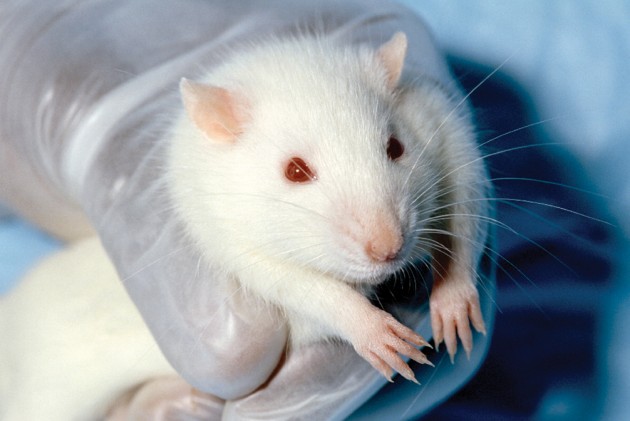Study links sugar intake to stress

A high-fat diet may not come to mind when trying to find methods for losing weight and reducing stress. But that’s what a USF research team’s study has discovered.
The study, a project of researcher David Diamond, found some contradictions to conventional dietary knowledge — that sugar, not fat, may be the culprit in causing stress and unhealthy eating habits.
“I had this simple idea …Fat in rats had been shown to produce stress hormones,” said Diamond, a professor of psychology, molecular pharmacology and physiology, as well as a career scientist for the Veteran’s Association. “I’m mainly interested in stress. The rats that were on a high-fat diet and were stressed were basically brain damaged. Their brain cells had atrophied.”
Diamond wondered if sugar intake was affecting the physiology in rats, which he said is very similar to human physiology, making them ideal test subjects. Both can “eat anything” and have similar hormone responses to stress.
Diamond’s assistant Shyam Seetharaman, a graduate student working toward his Ph.D. in behavioral neuroscience, said the rats were sectioned into three groups: one took in a high-fat, high-sugar “American diet,” one a high-fat, low-sugar Atkins diet, and one, a control group, ate standard rat pellets low in fat and sugar. All groups were allowed to eat as much as they wanted.
The rats on the Atkins diet ate the least and gained the least amount of weight.
“When you eat a meal high in fat, you feel full and satisfied and are less likely to eat more later,” Diamond said. “People have been misinformed about their diet. One thing that motivates me is to show that fat in the diet is very healthy.”
Diamond’s work blossomed when he uncovered a possible link between diet and stressful memories.
Two weeks into the study, each rat was given a “bad experience” — a minor shock when entering a certain room. Usually, when given a similar shock, rats have forgotten it in studies.
A month later, the rats were brought into the same room. Those on the American diet showed signs that they still remembered the trauma, while the Atkins and control rats showed no sign or fear of memories, Diamond said.
Next, the researchers put the rats in a room where they could either hide in the dark or go into the light and explore their surroundings. Only 20 percent of the American diet rats chose to explore their surroundings. However, more than 50 percent of rats on the Atkins diet were curious and unafraid to explore.
So, what did that tell researchers? Maybe it’s the sugar — not the fat — that people should lookout for.
“I think the study is unique,” Seetharaman said. “Previous information has inundated the American public and conventional wisdom that fat is bad for you … while this study has shown that sugar … may contribute to impairing brain function which has not been widely studied.”
People crave foods higher in sugar and fat when stressed, Diamond said. It’s a “vicious cycle.” People try to relieve their stress by eating more sugar-filled foods.
This process is something Ryke Stearns, a junior majoring in theater performance, can attest to, as he works at the Ben and Jerry’s located in the Andros Center.
“A vast majority of students come in here for a pick-me-up, and it’s usually ice cream,” Stearns said. “A lot of students come in every day for a shake as part of their regular diet. And it’s interesting that when one person comes in saying they want ice cream, all their friends cave and get ice cream as well.”
Diamond said the study should be ready for publication by the end of the month. From there, its fate will be determined by peer reviews. The study was funded through a research grant from the Veteran’s Association, an organization interested in helping people who have been traumatized, Diamond said.
“That’s the main focus of my work, to help people who have been traumatized in combat,” he said. “Soldiers with traumatic experiences in combat are prone to heart disease … What harms our health in modern times is the sedentary lifestyle, which interacts with stress — which interacts with diet to create a toxic environment.”







